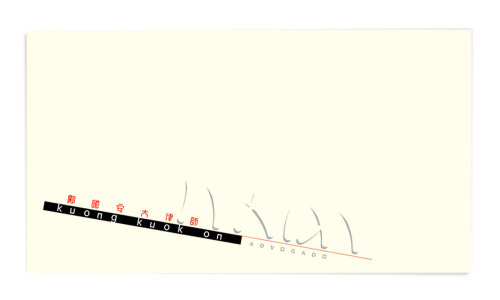Best Bad Faith Insurance Lawyers in Beijing
Share your needs with us, get contacted by law firms.
Free. Takes 2 min.
List of the best lawyers in Beijing, China
About Bad Faith Insurance Law in Beijing, China
Bad Faith Insurance Law in Beijing, China refers to legal doctrines that regulate the behavior of insurance companies towards their policyholders. When an insurance company unreasonably denies a claim, delays payment, or fails to investigate a claim properly, it may be acting in bad faith. In Beijing, as with the rest of China, insurance regulations are designed to protect the rights of insured individuals and ensure fair transactions between insurers and their clients.
Why You May Need a Lawyer
There are common situations where you may require legal help in Bad Faith Insurance cases. These include experiencing persistent delays in claim processing without reasonable justification, receiving unjustifiably low settlement offers, having a claim denied based on inaccuracies or misinterpretation of policy details, and facing threats or harassment from an insurance company. If you encounter these or other forms of insurer misconduct, a lawyer can help you understand your rights and navigate the complex legal system to seek appropriate redress.
Local Laws Overview
The key aspects of local laws relevant to Bad Faith Insurance in Beijing, China, are primarily governed by the Insurance Law of the People's Republic of China and interpretations by the People's Courts. These laws set forth the responsibilities of insurance companies in their dealings with clients, including the obligation to honor legitimate claims and provide timely payments. They outline the consequences for insurance companies failing to comply with their duties and provide a legal framework for policyholders to file complaints and claims against insurers suspected of acting in bad faith.
Frequently Asked Questions
What constitutes bad faith in an insurance context in Beijing?
Bad faith can include a variety of actions such as unreasonable denial of coverage, failure to communicate important information, delayed claim processing, and not paying the full value of a legitimate claim.
How do I prove that an insurance company is acting in bad faith?
To prove bad faith, you must demonstrate that the insurer had no reasonable basis to deny your claim and that the insurer knew or disregarded the lack of a reasonable basis.
What kind of compensation can I receive if I win a bad faith insurance lawsuit?
Compensation may include the amount of the original claim, legal fees, and in some cases, additional punitive damages.
How long do I have to file a bad faith claim in Beijing?
The statute of limitations for filing a bad faith claim in Beijing will depend on the specific circumstances. It's essential to consult with a lawyer to understand the relevant time limits.
Can I resolve a bad faith insurance dispute without going to court?
Yes, many disputes can be resolved through negotiation or mediation, but if these methods fail, litigation might be necessary.
Will my insurance premiums go up if I make a bad faith claim?
Filing a bad faith claim should not affect your insurance premiums directly, but the resolution of your claim might impact future policies.
How do I report a bad faith insurance company in Beijing?
You can report bad faith insurance practices to the local regulatory body, such as the China Banking and Insurance Regulatory Commission (CBIRC).
Do I have to accept the insurance company's settlement offer?
No, you are not required to accept an offer if you believe it to be unreasonable. You can negotiate further or seek legal counsel for other options.
Can an insurance company cancel my policy for filing a complaint or lawsuit?
An insurance company should not cancel your policy solely for filing a complaint or lawsuit. Doing so could in itself be an act of bad faith.
Should I hire a local Beijing lawyer for a bad faith insurance case?
Yes, hiring a local lawyer familiar with Beijing's insurance laws can be beneficial in navigating the legal system and advocating on your behalf.
Additional Resources
For those in need of legal advice related to Bad Faith Insurance, the following resources may be helpful: China's Banking and Insurance Regulatory Commission (CBIRC), the China Consumer Association, and the local Beijing courts. Additionally, seeking the help of legal clinics and legal aid organizations specializing in insurance law can provide guidance and support.
Next Steps
If you need legal assistance in Bad Faith Insurance, the best course of action is to document all interactions with your insurance company. Gather evidence, such as communications, claim documents, and policy agreements. Then consult with a lawyer specializing in insurance law. A skilled attorney can help you evaluate your situation, guide you through the process of filing a complaint, and represent you in negotiations or court if necessary.
Lawzana helps you find the best lawyers and law firms in Beijing through a curated and pre-screened list of qualified legal professionals. Our platform offers rankings and detailed profiles of attorneys and law firms, allowing you to compare based on practice areas, including Bad Faith Insurance, experience, and client feedback.
Each profile includes a description of the firm's areas of practice, client reviews, team members and partners, year of establishment, spoken languages, office locations, contact information, social media presence, and any published articles or resources. Most firms on our platform speak English and are experienced in both local and international legal matters.
Get a quote from top-rated law firms in Beijing, China — quickly, securely, and without unnecessary hassle.
Disclaimer:
The information provided on this page is for general informational purposes only and does not constitute legal advice. While we strive to ensure the accuracy and relevance of the content, legal information may change over time, and interpretations of the law can vary. You should always consult with a qualified legal professional for advice specific to your situation.
We disclaim all liability for actions taken or not taken based on the content of this page. If you believe any information is incorrect or outdated, please contact us, and we will review and update it where appropriate.












